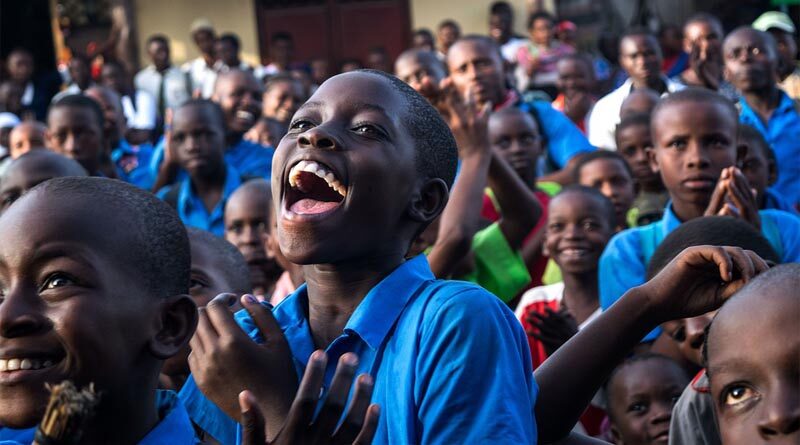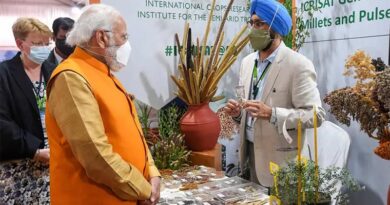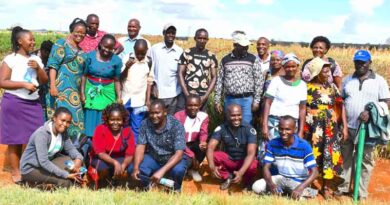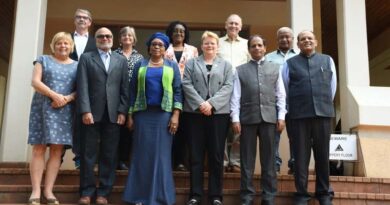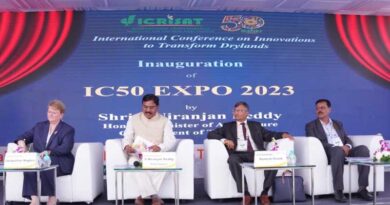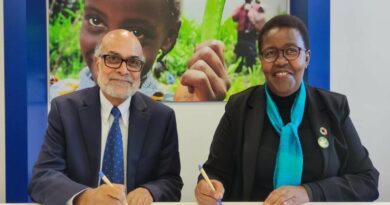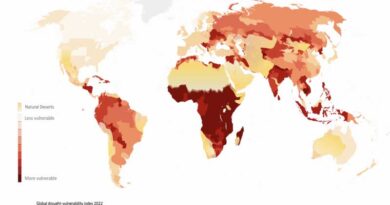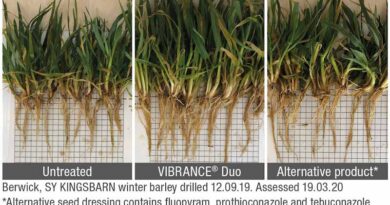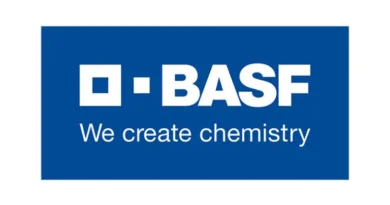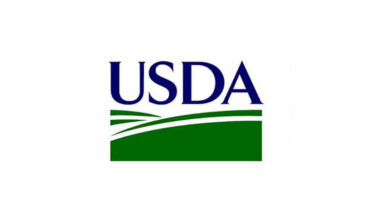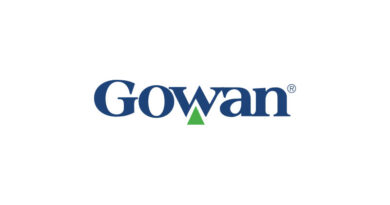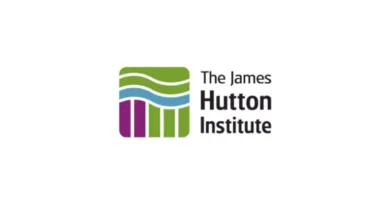Icrisat celebrates its 50th anniversary in kenya
The International Crops Research Institute for the Semi-Arid Tropics (ICRISAT) is celebrating its golden jubilee, in Kenya, marking 50 years of agricultural scientific innovation and impact since its establishment in 1972.
09 April 2022, kenya: The celebrations in Nairobi – home to the Institute’s regional offices in East and Southern Africa, build upon earlier festivities launched by the Prime Minister of India Mr. Narendra Modi at ICRISAT’s global headquarters in Hyderabad, India in February.
ICRISAT which won the Africa Food Prize in 2021, has an illustrious history of developing higher yielding and drought tolerant crop varieties, essential to the livelihoods of smallholder farmers in the semi-arid tropics.
Dr. Jacqueline Hughes, ICRISAT Director GeneralThe Institute’s specialty crops include sorghum, pearl millet, finger millet, groundnut, pigeonpea and chickpea which help underscore the food security of millions across the African Continent.
Speaking from Nairobi, ICRISAT Director General, Dr. Jacqueline Hughes said she was delighted to be in Kenya to mark the historic occasion where she would be meeting with staff of the Institute along with local and national partners.
“Today we pay tribute to our local scientists, the National Agricultural Research Systems and other partners who work in close collaboration to deliver the improvements we continue to witness in dryland farming” said Dr. Hughes.
“Our 50th Anniversary is an occasion to not only celebrate the gains we have made to food security in Africa, but to rededicate ourselves to overcoming the challenges that lie ahead for smallholder farming communities, not the least the impacts of climate change and environmental degradation.
“While the world grapples with these challenges there tragically remains one constant for dryland farming communities, and that is food insecurity and hunger.
“With our deep expertise in dryland farming and recent scientific advances, ICRISAT will continue to serve as global research leader to reduce poverty, hunger, malnutrition, environmental degradation while making farming profitable.
“We will also augment our scientific advances through new innovations and technology while working to influence good public policy – especially with a focus on women and youth who are central to developing a more equitable and sustainable agricultural sector” concluded Dr. Hughes.
ICRISAT and Kenya
ICRISAT’s association with Kenya commenced in 1982 with the Institute now collaborating with various partners including the Kenya Agricultural Livestock and Research Organizations (KALRO), Ministry of Agriculture, Livestock Fisheries and Cooperatives (MoALF), National and County governments, CGIAR centers, NGOs, development partners and the private sector.
Some of the successful multidisciplinary initiatives implemented in Kenya led by ICRISAT include:
- The Accelerated Value Chain Development (AVCD) and The Accelerated Institutions and Food Systems Development (AIFSD) programs, funded by USAID through Feed the Future
- Strengthening Sorghum and Millet Value Chains for Food, Nutritional and Income Security in Arid and Semi-Arid Lands (SOMNI) funded by International Fund for Agricultural Development (IFAD)
- Harnessing Opportunities for Productivity Enhancement of Sorghum and Millets in Sub-Saharan Africa and South Asia (HOPE)
- The Tropical Legumes Projects funded by Bill and Melinda Gates Foundation (BMGF)

